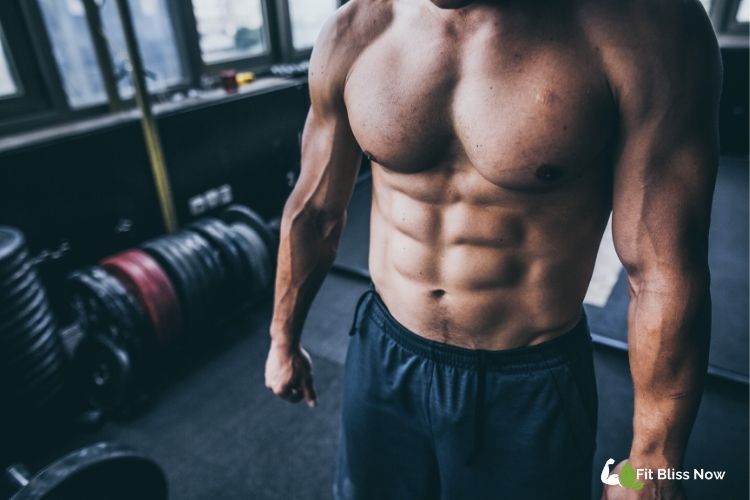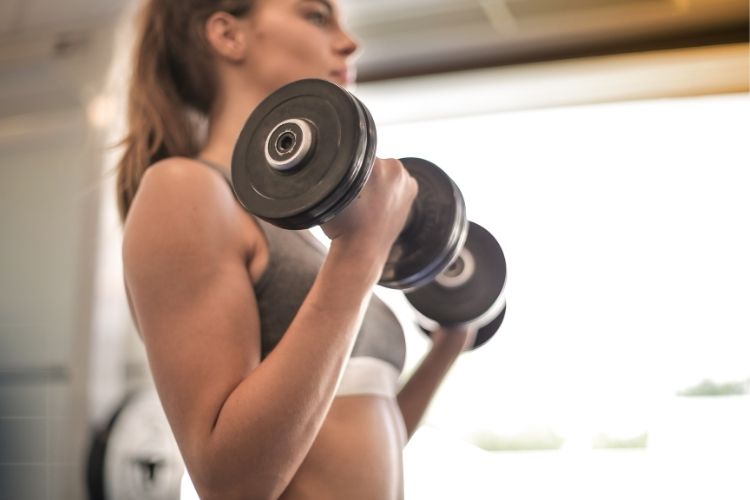When it comes to athletic performance and overall fitness, protein plays a crucial role. For athletes, protein is not just a dietary component; it is a fundamental building block that supports their rigorous training and helps them achieve optimal performance. But why exactly is protein so important for athletes? Let’s delve into the details.

Protein Powder
The Role of Protein in the Body
Protein is one of the three macronutrients, along with carbohydrates and fats, that provide energy to the body. It is made up of amino acids, which are essential for various bodily functions. These include:
- Building and repairing tissues, including muscle fibers.
- Supporting immune function.
- Producing enzymes and hormones.
- Maintaining healthy skin, hair, and nails.
For athletes, the most significant role of protein is its ability to help repair and build muscle tissues that are broken down during intense physical activity.
Muscle Repair and Growth

What are the Benefits of Eating Foods High in Protein?
Athletic training, especially activities like weightlifting, running, or high-intensity interval training, creates small tears in muscle fibers. Consuming sufficient protein helps repair these tears, leading to stronger and larger muscles. This process, known as muscle protein synthesis (MPS), is crucial for muscle recovery and growth.
Without enough protein, athletes may experience slower recovery times, increased fatigue, and a higher risk of injuries.
Energy Source for Athletes
While carbohydrates are the primary source of energy during exercise, protein can also serve as a backup energy source when carbohydrate stores are depleted. This becomes particularly important during long-duration events like marathons or triathlons, where the body might tap into protein reserves for fuel.
Importance of Protein Timing
The timing of protein intake significantly impacts its effectiveness. Athletes should aim to consume protein at specific times to maximize its benefits:
- Pre-Workout: A light meal or snack containing protein and carbohydrates provides the energy and amino acids needed for optimal performance.
- Post-Workout: Consuming protein within 30 minutes to 2 hours after exercise promotes muscle protein synthesis and aids recovery.
- Throughout the Day: Distributing protein intake evenly across meals helps maintain a steady supply of amino acids for the body.
How Much Protein Do Athletes Need?

The recommended daily protein intake for the average person is 0.8 grams per kilogram of body weight. However, athletes require more to support their training and recovery. The general guidelines are as follows:
- Endurance athletes: 1.2 to 1.4 grams of protein per kilogram of body weight.
- Strength and power athletes: 1.6 to 2.0 grams of protein per kilogram of body weight.
For example, a 70-kilogram endurance athlete would need approximately 84 to 98 grams of protein per day, while a strength athlete of the same weight might require 112 to 140 grams.
Best Sources of Protein for Athletes
Athletes can obtain protein from a variety of sources, including:
Animal-Based Protein Sources
- Chicken breast: A lean source of high-quality protein with minimal fat.
- Eggs: Packed with essential amino acids and easy to prepare.
- Fish: Rich in protein and omega-3 fatty acids, which reduce inflammation.
- Greek yogurt: A great source of protein and probiotics for gut health.
- Whey protein powder: A convenient and fast-digesting protein supplement.
Plant-Based Protein Sources

- Lentils: High in protein and fiber, perfect for plant-based diets.
- Quinoa: A complete protein that contains all nine essential amino acids.
- Chickpeas: Versatile and rich in protein and other nutrients.
- Tofu and tempeh: Excellent soy-based protein sources.
- Nuts and seeds: Provide healthy fats along with protein.
Athletes following a vegan or vegetarian diet can combine different plant-based sources to ensure they get all essential amino acids.
Protein and Weight Management
For athletes, maintaining a healthy weight is often crucial for peak performance. Protein plays a key role in weight management by:
- Increasing Satiety: High-protein meals make you feel fuller for longer, reducing the likelihood of overeating.
- Boosting Metabolism: Digesting and metabolizing protein requires more energy compared to carbohydrates or fats, which can slightly increase calorie expenditure.
- Preserving Muscle Mass: During weight loss, protein helps protect muscle mass while promoting fat loss.
Risks of Inadequate Protein Intake
Insufficient protein intake can have several negative effects on athletes, such as:
- Delayed recovery and prolonged muscle soreness.
- Loss of muscle mass and strength.
- Weakened immune system, leading to frequent illnesses.
- Increased risk of injuries and fractures.
To avoid these issues, athletes must prioritize protein in their diet and ensure they meet their daily requirements.
Can Athletes Consume Too Much Protein?
While protein is essential, consuming excessive amounts does not provide additional benefits and may strain the kidneys over time. Moderation and balance are key. Athletes should focus on meeting their specific protein needs rather than exceeding them.
Why Is Protein Important For Athletes?

The glycogen stored in your muscles is used for the energy needed for every movement you make. The primary energy source for your body is healthy carbohydrates, followed by fats. Proteins are the last components used as an energy source. During physical activity, proteins help renew tissues. This is why your muscles get damaged during training. In weight training, the aim is to create an environment for renewal and growth by intentionally causing muscle damage. Protein also helps in the renewal and repair of body cells. Factors such as the type, intensity, and duration of your workout, as well as your gender, dietary habits, and age, play a significant role in determining your protein needs. As your workout duration increases, protein breakdown in muscles increases. If your body does not get enough amino acids from food, it cannot synthesize new cells, and your damaged cells cannot be repaired.
If you do not consume enough protein, you may experience muscle loss. Since your damaged muscles are not repaired, you will not have the necessary muscle strength for your next workout, and your performance will decline. Regardless of the sport you are involved in, your protein and energy needs are higher than those of the average person. For athletic individuals, a protein-rich diet is crucial not only for maintaining overall health but also for the development and strengthening of muscles.
Should Protein Be Taken Before or After Sports?

The timing of protein consumption is just as important as getting enough protein. So, do you know when you should consume protein? Protein intake depends entirely on your fitness goals. These goals may be weight loss, muscle gain, or maintaining your form. Depending on your goal, protein intake can be before, after, or both before and after workouts. If you are following a training program for weight loss, it is beneficial to consume protein at every meal. A high-protein meal can increase your metabolism and reduce your appetite. Snacks like yogurt, milk, and nuts between meals can help you consume fewer calories at your next meal. If you are working out to build muscle and improve fitness, the best time for protein intake is after your workout. During exercise, your muscles tear and get damaged. They need protein to repair. The period 15-60 minutes after exercise, known as the anabolic window, is the ideal time for protein consumption. However, if you are doing resistance training like weight lifting, you can also prepare a meal containing protein and carbohydrates before your workout to enhance your muscle performance during the session.


